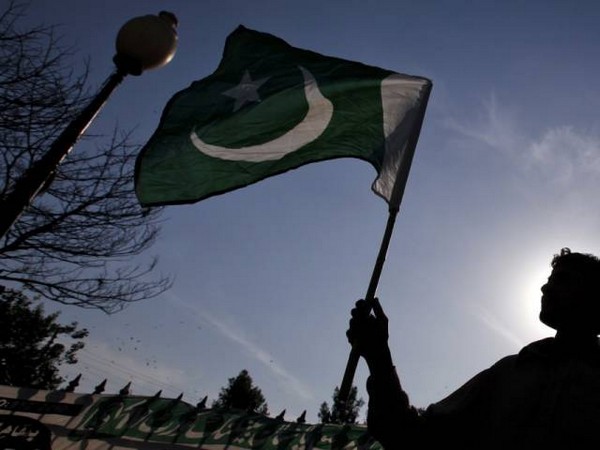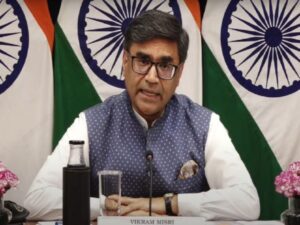Targeted killings of religious minorities in Pakistan
Islamabad [Pakistan], May 5 (ANI): Religious minorities in Pakistan are currently engaged in a battle for their very survival, as the nation continues to lean towards Islamic conservatism.

Shockingly, hardly a day passes without an attack being launched against those belonging to minority communities within Pakistan. Over the course of just two days, three targeted incidents led to the deaths of individuals hailing from minority communities in different parts of the country.In Peshawar, a Sikh shopkeeper, Dayal Singh, was gunned down by an unknown assailant on March 31, while on April 1, a Christian man by the name of Kasheef Masih was similarly shot dead by unidentified gunmen.
In Karachi, the prominent Hindu Scheduled Castes (SCs) member, Dr Birbal Ginani, was deliberately targeted and killed on March 30.
The failure of law enforcement agencies to apprehend the perpetrators of these murders has left religious minorities in Pakistan feeling frustrated, angry, and increasingly helpless. Both religious and political motives have prevented Islamabad’s ruling governments from addressing the concerns of minorities who continue to endure daily persecution and humiliation at the hands of members of the majority community.
Last December, Pakistan was designated by the United States as a “country of particular concern” under the Religious Freedom Act due to its flagrant violations. The Act mandates that countries be designated as such if they are found to breach religious freedoms systematically and consistently.
Furthermore, the 2021 US Report on International Religious Freedom stated that local law enforcement in Pakistan failed to protect religious minorities and individuals accused of blasphemy. The Center for Social Justice (CSJ), an NGO, reported that 84 blasphemy cases were filed in 2021 and 199 in 2020.
The drop in cases was attributed to the Covid-19 lockdowns rather than an improvement in law enforcement efforts in Pakistan. The CSJ’s previous reports highlighted four key issues contributing to the subjugation of religious minorities in Pakistan: misuse of blasphemy laws, the prevalence of forced conversions, the underrepresentation of minorities in the national population census, and issues with education reform.
The rising cases of targeted killings such as in Peshawar and Karachi prove that little has been done to address these concerns to protect the rights of religious minorities in Pakistan. Ranveer Singh, a spokesperson for Pakistan’s minority Sikh community, told the media that the deceased Dayal Singh had no issues with anyone from the majority community. Ranveer also expressed that Sikhs are feeling increasingly unsafe in the country, as 11 members of their community have been killed in recent years.
It is important to note that Pakistan attempted to take all credit for the opening of the Kartarpur Corridor in November 2019, with the intention of disturbing the internal religious environment in India.
Islamabad has since positioned itself as a saviour of the Sikh faith, permitting extremist groups to operate from its borders and jeopardising Indian interests. On the contrary, members of the Sikh community and their religious places are getting targeted for practicing their religion in Pakistan.
Like the recent incident, two Sikh businessmen were shot dead by the “unidentified armed men”, reportedly belonging to the Islamic State, in Peshawar last May. Statistics from the 2017 Population Census reveal that while Muslims constitute 96.2 per cent of Pakistan’s populace, Hindus account for just 1.6 per cent, Christians 1.59 per cent, Scheduled Castes 0.25 per cent, Ahmadis 0.22 per cent, and other minorities 0.07 per cent.
Despite such small numbers and hardly any threat to the majority community, religious minorities in Pakistan continue to suffer from rape, forced conversions, murder, and destruction of their properties. As per the CSJ figures, the religious minorities in 2021 were affected by the abuse (over 46 per cent) more than their share in the population which is 3.5 per cent. Many analysts posit that religious conservatism in Pakistan has intensified following the Taliban’s takeover of Afghanistan.
Khyber Pakhtunkhwa province, which borders Afghanistan, is experiencing a surge in targeted attacks against religious minorities, such as the killing of Masih on April 1 by “unknown assailants” and the assassination of a prominent Christian priest in Peshawar last January.
Notably, the safety and security of religious minorities in Pakistan has become even more precarious after former Prime Minister Imran Khan proposed to transform the country into a utopian “Riyasat-e-Medina”.
His conservative Islamic policies only compounded the hardships experienced by religious minorities and fuelled an uptick in attacks motivated by false blasphemy allegations or simply belonging to a minority community.
According to the 2022 Amnesty International yearly report on Pakistan, “Blasphemy allegations continued to spark violence against both religious minorities and Muslims.”
Similarly, the 2021 US State Department report on International Religious Freedom averred that throughout the year, unidentified individuals and mobs targeted and killed Christians, Hindus, etc, in attacks “believed to be motivated by religion or accusations of blasphemy.”
Furthermore, perpetrators of such violence against religious minorities often face no legal consequences due to a lack of follow-through, bribes, and pressure on victims. Consequently, religious minorities in Pakistan will continue to face persecution and targeted attacks in the future.






